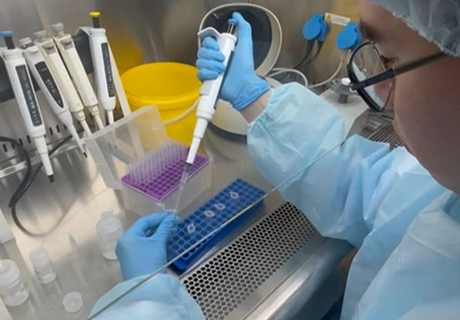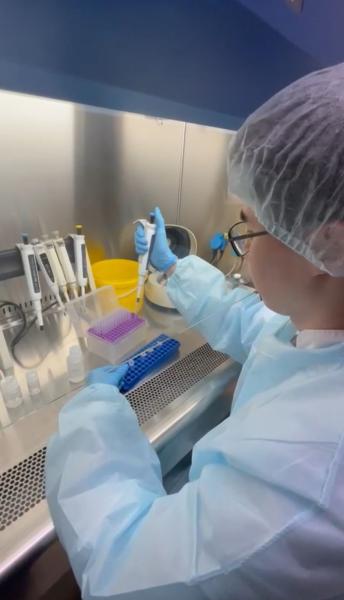Order a callback


Order a call

Order a service
 02.04.2025
02.04.2025
Modern medicine is constantly evolving, striving to find effective ways to combat infectious diseases. One of the most important areas in the diagnosis of viral infections is molecular genetic research, which allows for the high-precision detection of viruses, determination of their characteristics and prediction of their behavior in the human body.
Molecular genetic research is a method of analyzing the genetic material (DNA or RNA) of microorganisms. These technologies are used to detect and identify viruses, bacteria and other pathogens at the molecular level, which makes them indispensable in modern diagnostics.
Among the key methods of molecular diagnostics are:
High accuracy and sensitivity. Allows to detect the virus even at low concentrations in the body.
Speed of obtaining results. PCR analysis takes from several hours to one day, which speeds up the diagnostic and treatment process.
Determining the specific type of virus. Genetic analysis allows us to differentiate even similar virus strains.
Detecting viral mutations. This is especially important for monitoring changes in viruses such as SARS-CoV-2, influenza or HIV.
Minimal probability of false positive results. Unlike serological tests, molecular studies detect the virus itself, not antibodies to it.
Mass testing capability: With advanced technology, modern laboratories are able to process thousands of samples per day.
The molecular genetic research procedure includes several stages:
With the development of new viral infections and the emergence of mutations, classical diagnostic methods (e.g. microscopy or serological tests) may not be accurate enough. That is why molecular methods play a key role in:
Science does not stand still, and new diagnostic methods are already being developed, such as nanopore sequencing, CRISPR diagnostics and labs "on a chip". These technologies will allow analysis to be carried out even faster, more accurately and more affordable.
In addition, portable devices for express diagnostics of viruses are being developed that can be used in the field, which is especially important during epidemics and pandemics.
Modern molecular genetic research is not just an innovation, but a powerful tool in the fight against viral diseases.




